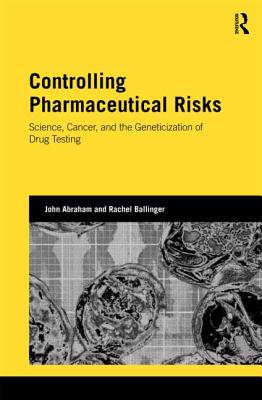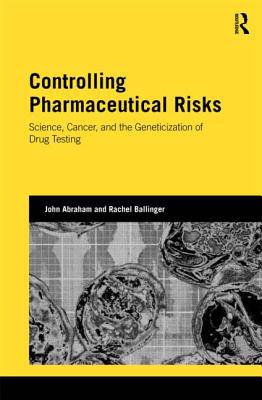
- Retrait gratuit dans votre magasin Club
- 7.000.000 titres dans notre catalogue
- Payer en toute sécurité
- Toujours un magasin près de chez vous
- Retrait gratuit dans votre magasin Club
- 7.000.0000 titres dans notre catalogue
- Payer en toute sécurité
- Toujours un magasin près de chez vous
Controlling Pharmaceutical Risks
Science, Cancer, and the Geneticization of Drug Testing
John Abraham, Rachel BallingerDescription
Controlling Pharmaceutical Risks is a case study of changes in drug testing since the late 1990s, specifically geneticization of carcinogenic risk assessment and regulation of pharmaceuticals. Radically new ways of determining whether medical drugs might cause cancer have been established world-wide since the turn of the century. At the heart of these transformations is the geneticization of drug testing and explanations for cancer induction. The most dramatic change in toxicology for over 30 years, geneticization is poised to revolutionize this life science by abolishing long-term animal testing. This situation has come about by a combination of technical and socio-political transmutations.
At stake are issues fundamental to bio-science, medical treatment and patients' health in wider society, such as what kind of knowledge is judged necessary to decide whether or not a drug is a carcinogen and when does a drug pose a significant carcinogenic risk to humans? Given that all new drugs, many with prospective world-wide markets, are potential carcinogens, this is an extremely important socio-political issue, but has been largely neglected in social science and indeed medicine. This is the first social science/policy book on the geneticization of international pharmaceutical testing and pharmaceutical toxicology.
The book challenges the idea that the geneticization of carcinogenic risk assessment is simply a reflection of inevitable progress in laboratory science. Rather, a basic contention of this book is that such developments are framed and constituted by discursive and non-discursive practices, involving confluence of technical manipulations and socio-political accomplishments. The in-depth empirical research forms the basis for explaining the social shaping of carcinogenic risk assessment, the social meaning of its geneticization and the public health implications of the consequent 'reduction' in this regulatory science for society.
Spécifications
Parties prenantes
- Auteur(s) :
- Editeur:
Contenu
- Nombre de pages :
- 224
- Langue:
- Anglais
- Collection :
Caractéristiques
- EAN:
- 9780415622479
- Date de parution :
- 01-06-25
- Format:
- Livre relié
- Format numérique:
- Genaaid
- Dimensions :
- 156 mm x 233 mm
- Poids :
- 452 g

Les avis
Nous publions uniquement les avis qui respectent les conditions requises. Consultez nos conditions pour les avis.






